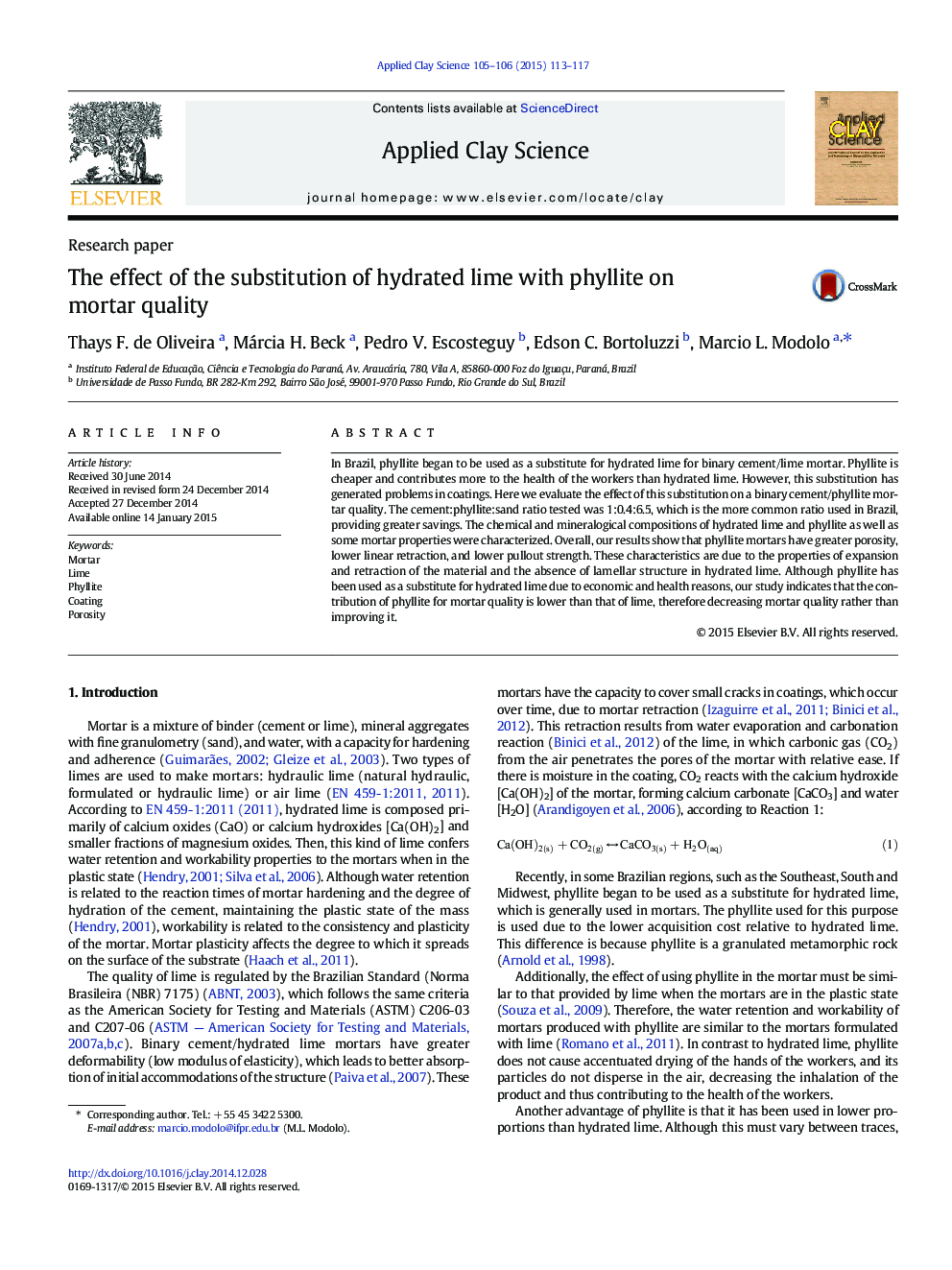| Article ID | Journal | Published Year | Pages | File Type |
|---|---|---|---|---|
| 1694566 | Applied Clay Science | 2015 | 5 Pages |
•Mortars produced with phyllite have greater porosity than those produced with lime.•Mortars produced with phyllite have lower pullout strength than those produced with lime.•The use of phyllite as a substitute for lime in mortars decreases the quality of the coating.•The effect of phyllite on the quality of the mortars is related to the structure of its minerals.
In Brazil, phyllite began to be used as a substitute for hydrated lime for binary cement/lime mortar. Phyllite is cheaper and contributes more to the health of the workers than hydrated lime. However, this substitution has generated problems in coatings. Here we evaluate the effect of this substitution on a binary cement/phyllite mortar quality. The cement:phyllite:sand ratio tested was 1:0.4:6.5, which is the more common ratio used in Brazil, providing greater savings. The chemical and mineralogical compositions of hydrated lime and phyllite as well as some mortar properties were characterized. Overall, our results show that phyllite mortars have greater porosity, lower linear retraction, and lower pullout strength. These characteristics are due to the properties of expansion and retraction of the material and the absence of lamellar structure in hydrated lime. Although phyllite has been used as a substitute for hydrated lime due to economic and health reasons, our study indicates that the contribution of phyllite for mortar quality is lower than that of lime, therefore decreasing mortar quality rather than improving it.
